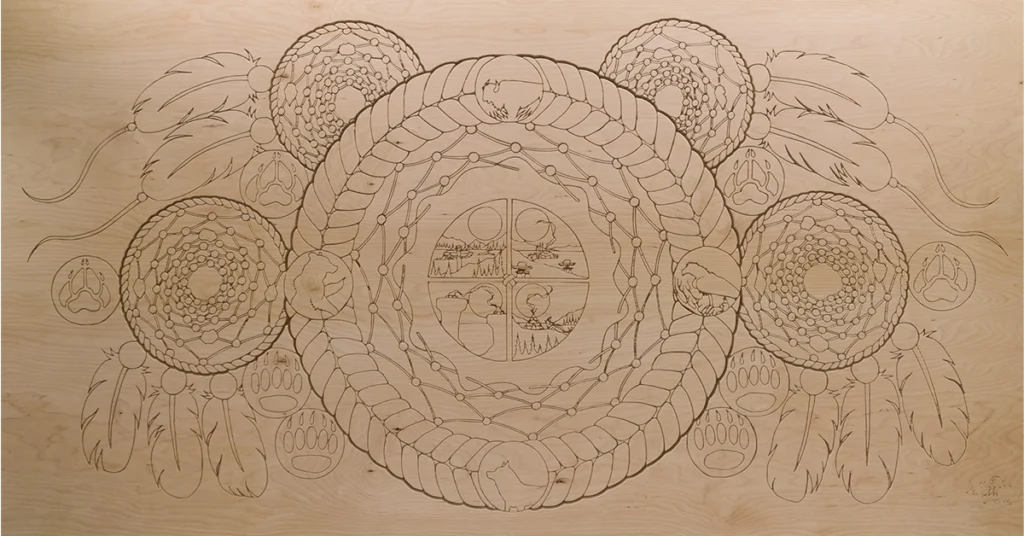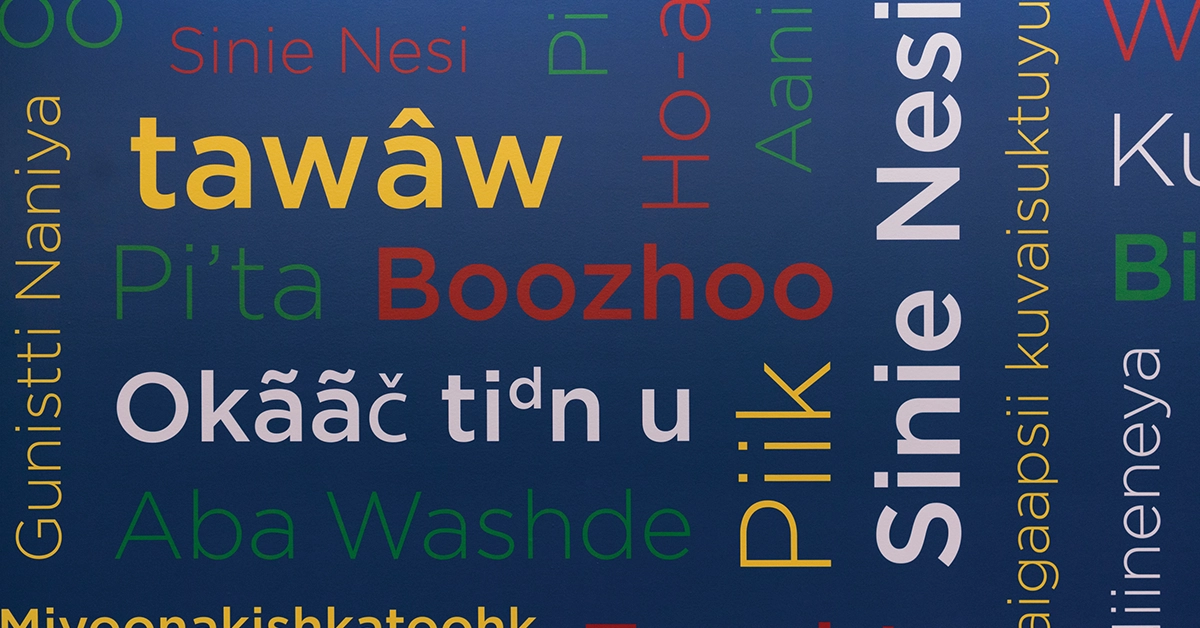Kihêw waciston, meaning “eagle’s nest” in Cree, offers a safe space for the exploration of indigenous culture at MacEwan University. The indigenous centre organizes events for students of all backgrounds to build their sense of community and learn about indigenous culture.
“The year has been going great so far,” says Keestin O’Dell, a student advisor and recruiter for kihêw waciston. “We have a ton of students, a lot of familiar faces, a lot of new faces as well. We’re trying to do a lot of activities this year and so we see a lot of fresh faces coming in.”
Events include powwow dancing and craft making, as well as guest speakers who discuss indigenous culture and how to interact respectfully with elders.
“That’s the number one thing I want to stress. All the events are not just for indigenous students, they’re open for anybody who wants to come in,” O’Dell says.
As a student advisor, O’Dell helps students from the beginning of their application process through to their graduation date. He works to provide access to indigenous scholarships, bursaries, and awards, band funding, and all the other areas necessary for success in post-secondary.
While part of O’Dell’s duties involve recruiting students at First Nations communities and schools, he prefers to think of himself as a relationship builder.
“I’m not just out there pushing MacEwan, but building relationships for these students, having that familiar face of me going out there, and getting to know me, so when they get to the university they’ve already made one friend,” says O’Dell.

By going out to communities and participating in activities, as well as making presentations about MacEwan’s resources, O’Dell encourages students to pursue a post-secondary education. Many indigenous students in rural areas are unaware of the culture-building programs available at kihêw waciston, so knowing that they will have access to their culture in downtown Edmonton makes for a more welcoming atmosphere.
“My first stop (at MacEwan) was at the Indigenous Centre here. Having the centre here really grounded me … Having that connection of an indigenous centre for talking about indigenous culture or knowledge, I think, helps students want to pursue post-secondary,” O’Dell says.
Kihêw waciston gives students a chance to feel connected to indigenous culture. The centre offers cultural advisors, has an on-campus elder who offers free advice and counselling, and provides smudging rooms for students who are seeking ceremonial healing.
However, one aspect of indigenous culture-building that is missing on campus is the availability of indigenous language classes. This is what Terri Suntjens, manager of kihêw waciston, is seeking to remedy.
“We’re really looking at creating and implementing a Cree language program for the university,” Suntjens says. “Those discussions are something that we’re having right now, and our hopes are that in the future we’ll see two 3-credit Cree language courses offered at MacEwan that could be part of a BA program.”
This initiative would provide students with an opportunity to use Cree classes to fulfill literacy or humanities requirements for a bachelor’s program. It would not only provide students of all backgrounds with the opportunity to take a class that promotes the revitalization of the Cree language, but would also be useful to anyone who might work with indigenous peoples.
Language is an essential part of culture, and many indigenous languages, including Cree, are considered endangered or at risk. This loss of language is largely due to indian residential schools, where young indigenous students were forbidden from speaking their first languages.
“Our culture is our language. Unfortunately, I’m a learner myself, and I never was raised in the language. My parents are fluent Cree speakers, but my mom is Métis and my dad attended residential school. The effects of residential school and the trauma of being forced not to speak the language influenced the way he taught us at home,” Suntjens says.
The Truth and Reconciliation Commission of Canada (TRC) has a number of calls to action that, if implemented, would help provide restitution for the residential school legacy. Call to Action 10 is for funding to be provided to protect indigenous languages by teaching them as credit courses, and Call to Action 16 is for post-secondary institutions to provide degrees and diplomas in indigenous languages.

Establishing two Cree classes at MacEwan University would be a first step toward fulfilling these calls to action.
The classes are a small part of the end goal, says Suntjens, who hopes to one day see a faculty of indigenous studies with a language major at MacEwan. Providing indigenous language courses is a key way to sustain indigenous practices in Canada, as language courses teach the next generations to appreciate the culture.
“Our language is really embedded in our culture, so there’s a huge connection, and if we don’t have both (language and culture) — it kind of doesn’t work that way,” says Suntjens.
The establishment of Cree lessons would help students become better connected to aspects of indigenous culture.
Language is a large part of daily life, but it also connects speakers to the spirit world since ceremonies and prayers are performed in Cree, says Suntjens. The relationship between spirituality and tradition is lost when the language is not passed on.
Not only does learning the language of a culture help students become better connected to the heritage and ceremony of the culture, language also helps speakers form a greater sense of community.
“What (students) love about the centre, or even MacEwan as well, is the sense of community that they have,” O’Dell says. “Many may come from rural communities, like I did, so for us to foster a sense of community and not feel isolated and not feel othered within the university is one thing that’s really important.”
Many students experience a sense of shock coming from rural areas to a downtown campus, but the spaces and resources offered at kihêw waciston serve as a source of comfort, says O’Dell.
As a downtown campus, MacEwan needs to work particularly hard to encourage the restoration of indigenous languages and culture. It’s easy for corporations, including universities, to focus on the bottom line more than the people they serve, but encouraging cultural growth benefits people of all backgrounds. Kihêw waciston helps all students feel welcomed and encouraged to succeed.
Through the culture-building initiatives led by the Indigenous Centre, students are bound to feel more and more at home at MacEwan and, in turn, thrive in the university community.
Photography supplied.





0 Comments